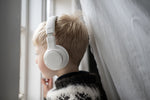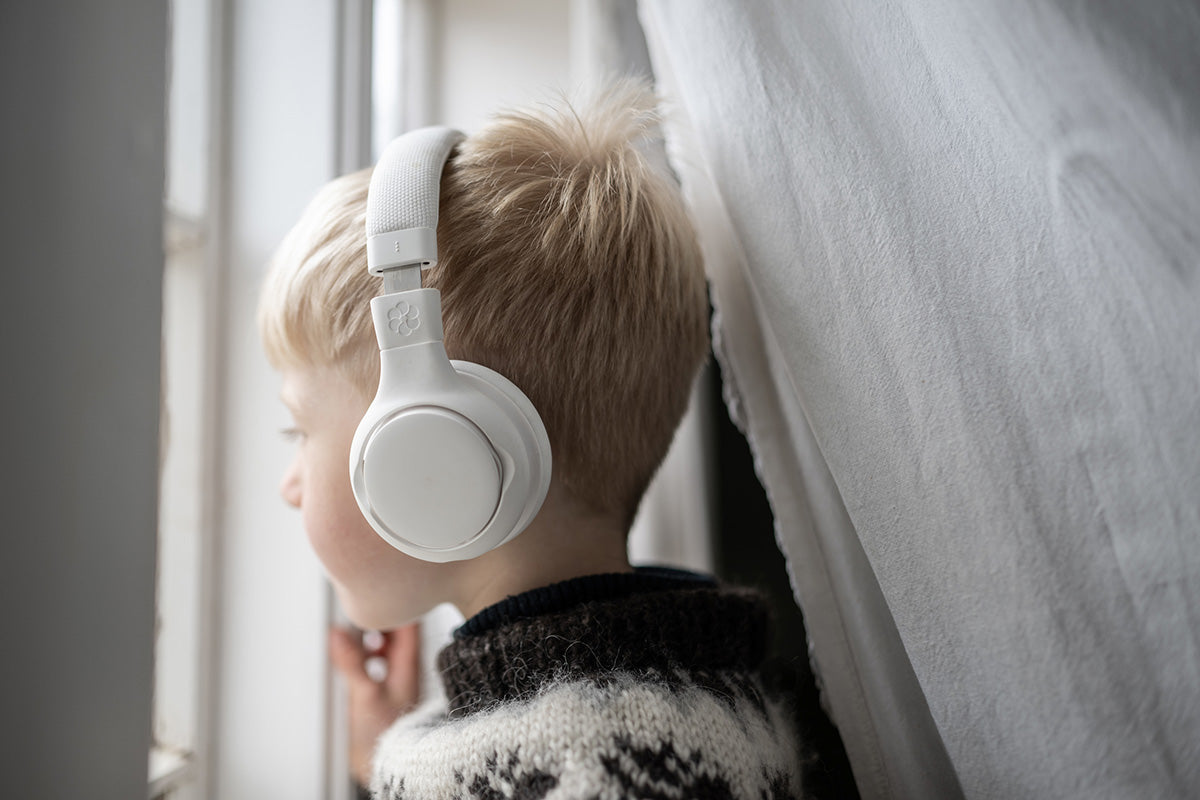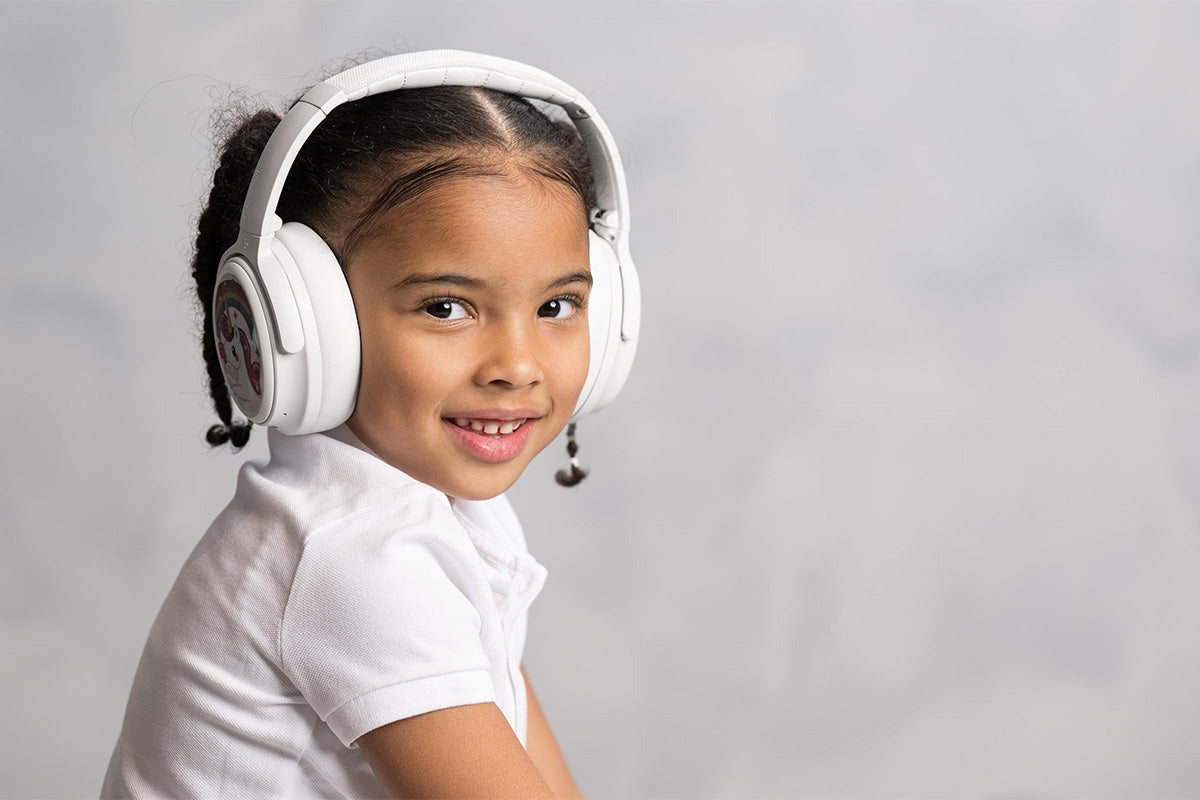
Understanding Childhood Anxiety: A Guide for Parents
- by Ester Hilmarsdottir
- 3 min reading time
Childhood anxiety is a growing concern. A 2020 NHS survey found that one in six young people in England (aged 5 to 16) experienced a mental health problem in 2020, up from one in nine in 2017. By 2023, this number increased to 20.3% of eight to 16-year-olds, according to the Mental Health of Children and Young People in England report by NHS England. With factors like the COVID-19 pandemic, social media, school pressures, exams, and world events, it's not surprising that more children are feeling anxious today. As parents, we want the best for our children, and it can be incredibly difficult to see them struggle with overwhelming emotions.
What is Childhood Anxiety?
Anxiety is the body's natural response to stress or uncertainty, characterized by feelings of worry, nervousness, or fear. While some anxiety can be helpful, excessive anxiety can be debilitating. Childhood anxiety isn't just a phase; it’s a real challenge that requires understanding and support.
Symptoms of Childhood Anxiety
Childhood anxiety can manifest in various ways. Here are some signs to watch out for, as recommended by Anxiety Specialist Cai Graham and echoed by the NHS:- Excessive worrying
- Frequent stomach-aches or headaches
- Trouble sleeping
- Irritability
- Body-focused repetitive behaviors (hair pulling, skin picking, nail-biting, nose picking, lip or cheek biting)
- Avoiding certain situations
Some children might also be clingy or seek constant reassurance. If these signs persist and affect your child's daily life, it might be worth seeking further support.
Causes of Childhood Anxiety
Childhood anxiety can stem from a mix of factors, including genetics, brain chemistry, and life experiences. Stressful events like moving, family conflicts, or starting school can trigger anxiety. Understanding these factors can help you better support your child during challenging times.

How to Help Your Child Cope with Anxiety
- Encourage a Healthy Lifestyle: Regular exercise, balanced nutrition, and adequate sleep can bolster your child's overall well-being and resilience against anxiety.
- Lead by Example: Demonstrate healthy stress-management techniques like deep breathing or mindfulness.
- Validate Their Feelings: Listen to and acknowledge your child's fears and worries. Anxiety is normal, and helping them feel understood can make a big difference.
- Create a Supportive Environment: Make sure your child feels comfortable expressing themselves freely.
When to Seek Help
If your child's anxiety significantly impacts their daily life, relationships, or well-being, it’s important to seek professional help. Early intervention can prevent anxiety from escalating into more serious issues. Visit your family GP for advice, therapy options, and possible referrals to mental health specialists.
How to Help with Childhood Anxiety
Several products can help alleviate anxiety in children, such as weighted blankets,essential oils, mindfulness toys, and stress balls. These tools can support your child and encourage them to open up about their feelings. The art of play can also be a useful tool to help children work through their feelings if they're feeling overwhelmed.
Reducing Screen Time
Excessive screen time can exacerbate anxiety. Nowadays, children have greater
access to media that can expose them to negative and adult themes, contributing to their anxiety. Managing screen time and providing alternative engaging activities, such as using StoryPhones, can help. StoryPhones offer engaging audio content offline and without screens, which can be especially beneficial in busy or overwhelming environments.
Addressing childhood anxiety early on is crucial. By creating a supportive environment, encouraging healthy habits, and seeking professional help when needed, you can help your child navigate anxiety and build resilience for the future.
Sources:
Hannah Carroll, 2024. Childhood Anxiety Is On The Rise – Here’s What You Need To Know And Expert Tips On How To Help:
https://graziadaily.co.uk/life/parenting/childhood-anxiety/
NHS UK, 2023. One in five children and young people had a probable mental disorder in 2023. https://www.england.nhs.uk/2023/11/one-in-five-children-and-young-people-had-a-probable-mental-disorder-in-2023/
NHK UK, 2020. Mental Health of Children and Young People in England.
https://digital.nhs.uk/data-and-information/publications/statistical/mental-health-of-
children-and-young-people-in-england/2020-wave-1-follow-up


